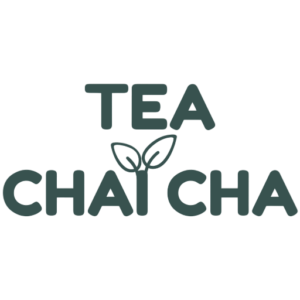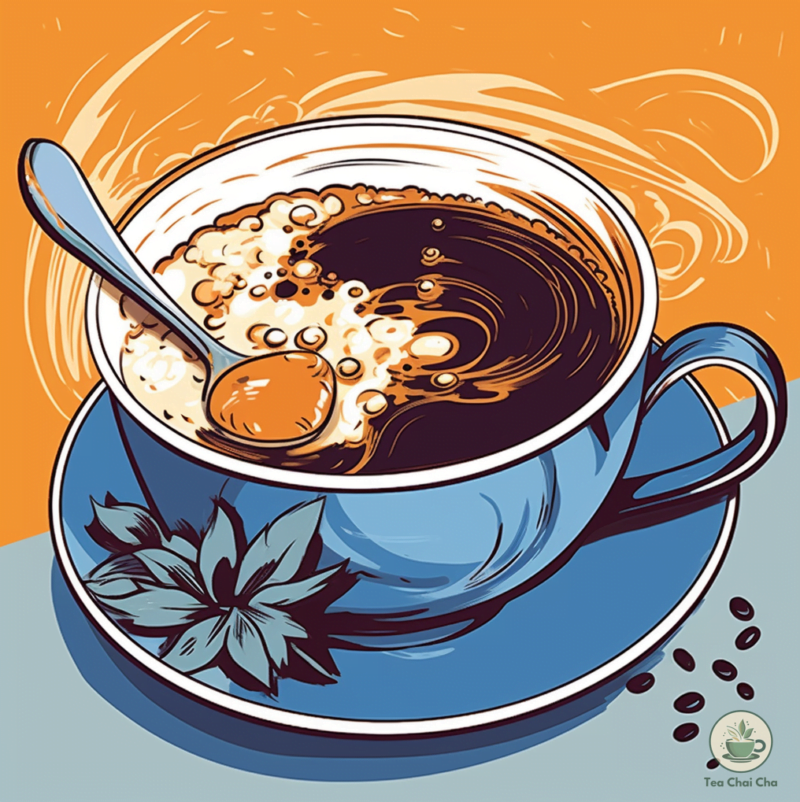Ahh, the age-old dilemma for tea lovers – black tea or milk tea?
But before we dive into that, let me tell you, the first question people always throw my way is, “tea or coffee?“
Now, I’m not here to spark a tea vs. coffee debate (although I have my preferences), but today, I want to chat about if black tea has caffeine.
SHORT ANSWER!
Yes, black tea has 50-90 mg caffeine per 8 oz. cup, depending on many factors.
For people trying to keep those sugar levels and blood pressure in check, black tea often becomes their beverage of choice.
But you see, it’s not just about health; it’s about that refreshing kick, that burst of energy that only a good cup of tea can provide.
Want to learn more on its caffeine content? Stick with me then!
Does Black Tea Have Caffeine?
Black tea comes from the evergreen Camellia sinensis plant, just like its tea siblings.
But it’s the most popular tea worldwide.
So, what sets it apart?
Caffeine.
Yes, that’s right.
Black tea boasts more caffeine than green tea but still plays second fiddle to coffee when it comes to a caffeine punch.
You might wonder why.
Well, it’s all about oxidation.
During the black tea production process, those leaves get fully oxidized, which removes certain amino acids that could have held back some caffeine.
Sneaky, right?
But that’s not all – this process also cranks up the levels of antioxidants, which are great for your well-being.
And here’s a little secret: those larger black tea leaves have a knack for capturing more caffeine goodness.
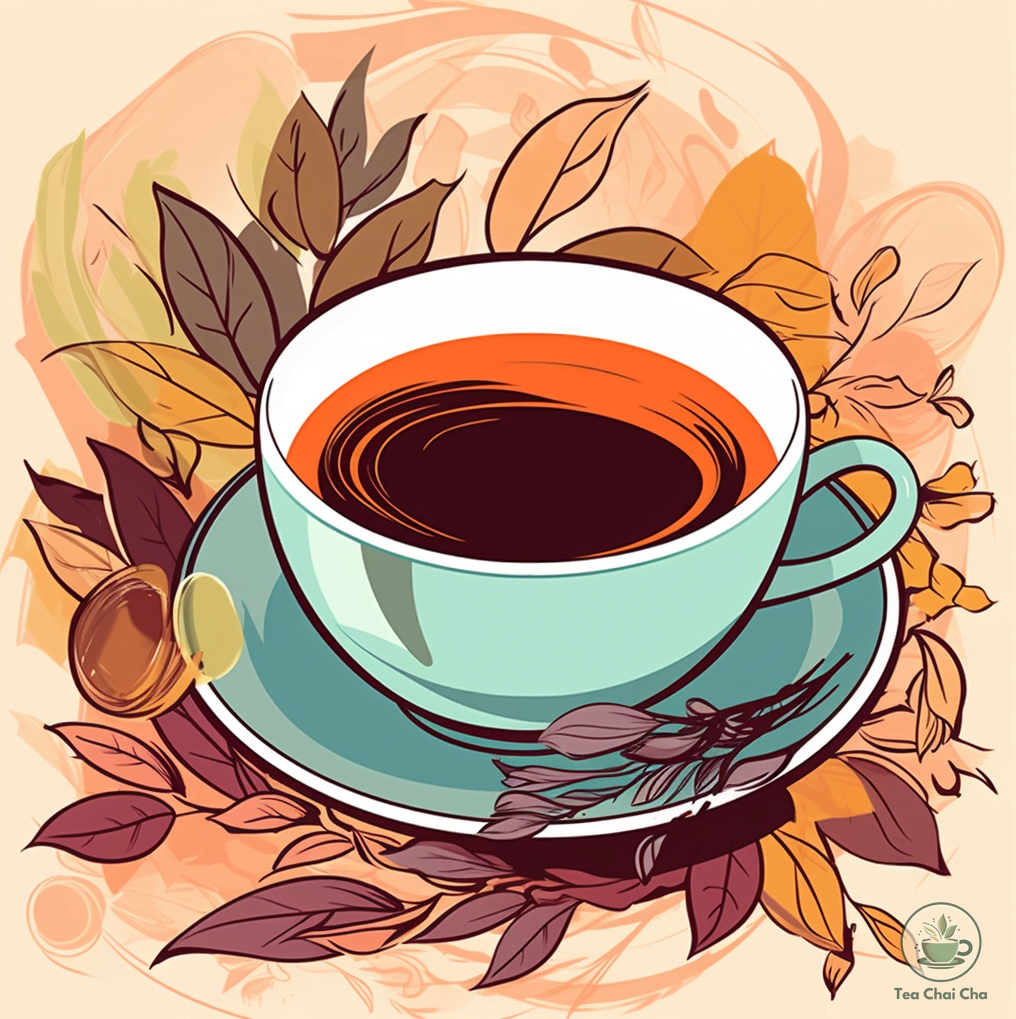
How Much Caffeine in Black Tea Leaves?
So, you might be wondering just how much caffeine is packed into those black tea leaves, right?
Black tea leaves typically contain around 2% to 4% caffeine by dry weight.
Loose leaf black tea has about 22-28 mg caffeine per 1 gram of dried leaves.
It counts as 40-70 mg of caffeine per 8 oz cup of black tea.
Yep, that’s the scoop.
Now, don’t let those numbers throw you off.
Black tea still has moderate levels of caffeine.
It might seem like a lot, but remember, it’s all about concentration.
When you steep those leaves in hot water, the caffeine gets diluted.
That’s why a cup of black tea usually has less caffeine than a cup of coffee.
How Much Caffeine Is in a Cup of Black Tea?
So, how much caffeine can you expect in that cup of black tea?
On average, I’ve found that it’s about 45mg of caffeine per 8 oz cup.
But just like coffee, not all black tea is created equal.
It turns out that the type of black tea can make a difference in the caffeine content.
I’ve come across various types and grades of black tea leaves, and they do indeed result in different levels of caffeine.
Some black teas pack a more robust caffeine punch, while others are more mellow in that department.
So, the 45mg is a ballpark figure, and it can vary depending on the specific type and grade of black tea you choose.
Personally, I’ve always enjoyed the subtle variations in flavor and caffeine content in different black teas.
Sometimes, I go for the strong, brisk ones when I need that extra boost.
And other times, I opt for the milder varieties for a more relaxed sipping experience.
Learn More – How to Make Black Tea – 22 Black Teas to Try!
Decaf Black Tea
I’ve always been a fan of black tea, but sometimes I want to enjoy its rich flavor without the jolt of caffeine.
That’s when I turn to decaffeinated black tea.
Here, I’ll share what I’ve learned about how black tea is decaffeinated and just how much caffeine you can expect in your cup of decaf black tea.
How is Black Tea Decaffeinated?
So, how exactly do they remove caffeine from black tea?
Well, it’s quite an interesting process, actually.
There are two main methods: the ethyl acetate method and the carbon dioxide method.
-> Ethyl Acetate Method
In this process, tea leaves are steamed and then rinsed with ethyl acetate, a chemical that naturally occurs in fruits.
This chemical bonds with the caffeine molecules, which are then washed away.
Don’t worry; very little ethyl acetate remains in the tea leaves after the process.
-> Carbon Dioxide Method
Here, supercritical carbon dioxide (CO2) is used to extract the caffeine.
This CO2 is at a high pressure and temperature, making it act like both a liquid and a gas.
It selectively removes caffeine while leaving most of the tea’s flavor compounds untouched.
This method is often considered more natural and environmentally friendly.
Both methods have their advantages.
But they ultimately aim to (try to!) preserve the taste and aroma of black tea while eliminating most of the caffeine.
How Many Milligrams of Caffeine in Decaffeinated Black Tea?
Decaffeinated black tea isn’t entirely caffeine-free, but the amount left is significantly lower than in regular black tea.
On average, an 8-ounce (240 ml) cup of decaf black tea contains about 2-10 milligrams of caffeine.
Keep in mind that the exact caffeine content can vary depending on factors like the tea brand, the decaffeination method used, and the brewing time.
Longer steeping times might result in slightly higher caffeine levels.
But it’s still much less than what you’d find in a typical cup of regular black tea, which can have anywhere from 40-70 milligrams of caffeine.
8 Ways to Reduce Caffeine in Black Tea
For those moments when you adore the flavor of black tea but need to cut back on caffeine, there are ways to reduce the caffeine content without sacrificing taste.
Here’s how I go about it:
1. Choose Decaffeinated Black Tea
The simplest way to enjoy a cup of black tea with minimal caffeine is to opt for decaffeinated black tea, as I mentioned in a previous section.
This tea has had most of its caffeine removed, leaving you with the robust flavor of black tea without the stimulating effects.
2. Blending with Herbal Tea
One of my favorite methods is to blend black tea with caffeine-free herbal teas.
Herbs like chamomile, peppermint, or rooibos can complement the flavor of black tea beautifully.
Simply steep both teas together for a unique and lower-caffeine infusion.
3. Shorter Steeping Time
If you prefer to use regular black tea and want to reduce its caffeine content, try steeping it for a shorter period.
Caffeine is released into the water early in the steeping process.
So, steep your tea for 30-45 seconds and discard the first infusion.
Then, steep it again for the full desired time to enjoy a cup with less caffeine.
4. Use Cooler Water
Another trick I’ve found effective is to use water that’s slightly cooler than boiling (around 190-200°F or 88-93°C) to steep your black tea.
This can extract less caffeine while preserving the flavor.
Steeping for a shorter time with cooler water can further reduce the caffeine content.
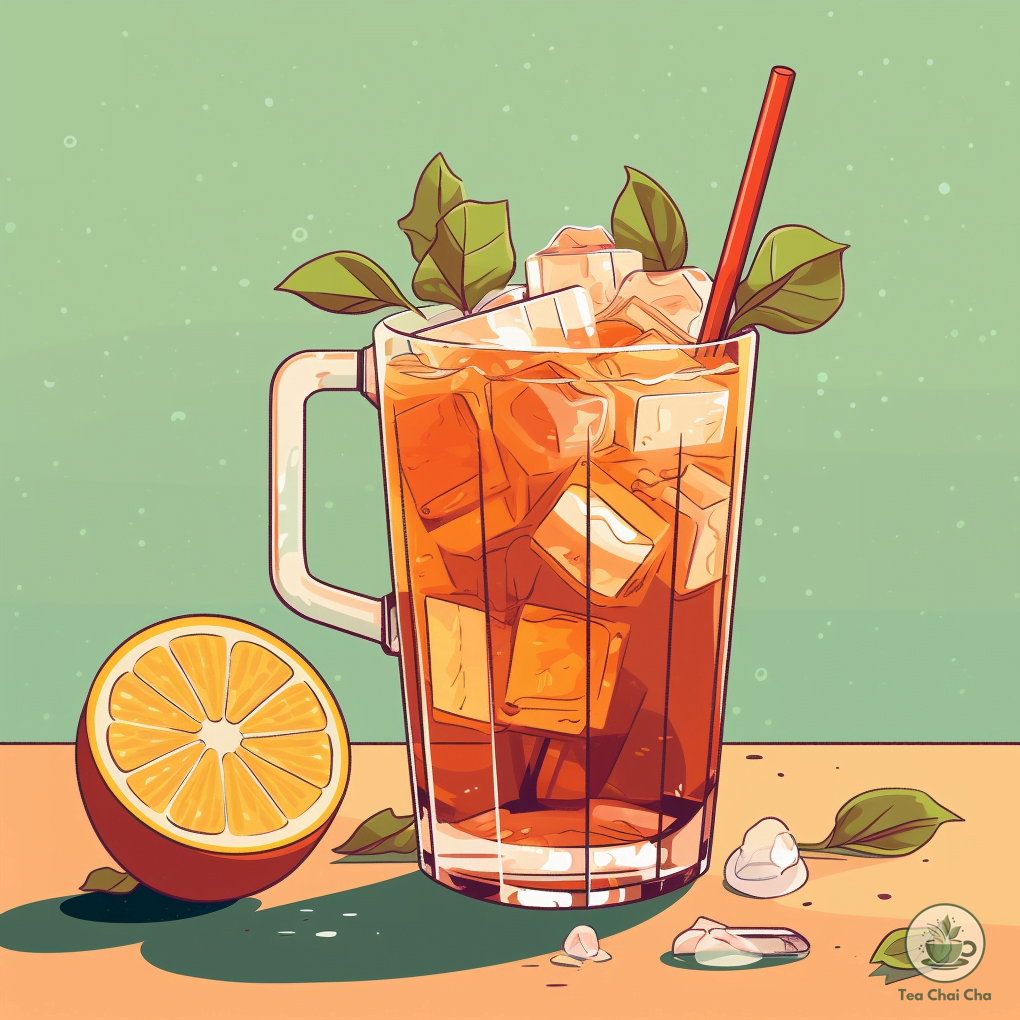
5. Make Iced Tea
Iced tea is a fantastic way to enjoy black tea with reduced caffeine, especially during hot summer days.
To make black tea with less caffeine, consider cold-brewing your black tea.
Cold brewing involves steeping tea leaves in cold water for an extended period, usually 6-12 hours in the refrigerator.
This gentle, slow process extracts less caffeine compared to hot steeping methods.
6. Opt for Tea Blends
Some tea blends are specifically designed to be lower in caffeine.
Look for black tea blends that incorporate a high proportion of other ingredients like dried fruits, flowers, or spices.
These additives can dilute the caffeine content while enhancing the taste.
7. Rinse the Tea Leaves
This method is similar to the shorter steeping time approach.
Before steeping, briefly rinse your tea leaves or tea bag with hot water and then discard the rinse water.
This removes some of the surface caffeine and can result in a milder cup of tea.
8. Try Different Black Tea Varieties
Black tea comes in various varieties, each with its own caffeine content.
For instance, Darjeeling black tea generally contains less caffeine compared to Assam black tea.
Explore different black tea types to find one that naturally aligns with your desired caffeine intake.
12 Factors Affecting Caffeine Content in Black Tea
When it comes to black tea, the caffeine content can vary depending on several factors.
Understanding these factors can help you control the amount of caffeine in your cup.
Here’s a breakdown of the key elements that influence caffeine levels in black tea:
1. Tea Leaf Type and Origin
The type of tea leaves used can significantly impact caffeine levels.
Camellia sinensis var. sinensis (small-leaf tea) generally contains less caffeine compared to Camellia sinensis var. assamica (large-leaf tea).
The tea’s origin, such as Assam or Darjeeling, also plays a role in caffeine content.
2. Tea Leaf Age
Young tea leaves tend to have higher caffeine levels than older leaves.
Tea made from the bud and young leaves (usually the top two leaves and a bud) typically contains more caffeine.
3. Tea Leaf Grade
The grade of tea leaves used can affect caffeine levels.
Whole leaf teas often have less caffeine than broken or fannings grades because caffeine tends to concentrate in the young, tender tea buds.
4. Flush
The flush of tea refers to the specific season when the tea leaves were harvested.
First flush teas (early spring) generally have slightly higher caffeine content compared to second or third flush teas.
5. Processing Method
The processing method can influence caffeine content.
For instance, black tea is more oxidized than green tea, and this oxidation process can result in a slight reduction in caffeine.
6. Brewing Time and Temperature
The way you brew your tea matters.
Longer steeping times and higher water temperatures can lead to more caffeine extraction.
If you want to reduce caffeine content, you can try brewing for a shorter time or at a lower temperature.
7. Tea Bag vs. Loose Leaf
The form of tea you use matters too.
Tea bags often contain smaller, broken tea leaves, which can release more caffeine during brewing compared to whole loose-leaf tea.
8. Water Quality
The mineral content and pH of the water you use for brewing can influence caffeine extraction.
Softer water with lower mineral content might extract less caffeine.
9. Leaf-to-Water Ratio
Adjusting the amount of tea leaves you use can influence caffeine concentration.
More leaves relative to water will yield a stronger tea with potentially higher caffeine content.
10. Blending and Flavored Teas
Flavored or blended black teas can have varying caffeine levels depending on the added ingredients.
For instance, teas with added mate or chocolate might have higher caffeine content.
11. Decaffeination Process
If you’re drinking decaffeinated black tea, the method used in the decaffeination process can impact the residual caffeine levels.
Some methods are more effective at removing caffeine than others.
12. Multiple Infusions
If you steep your tea leaves multiple times, the caffeine content will decrease with each subsequent infusion.
This is because much of the caffeine is extracted in the first steep.
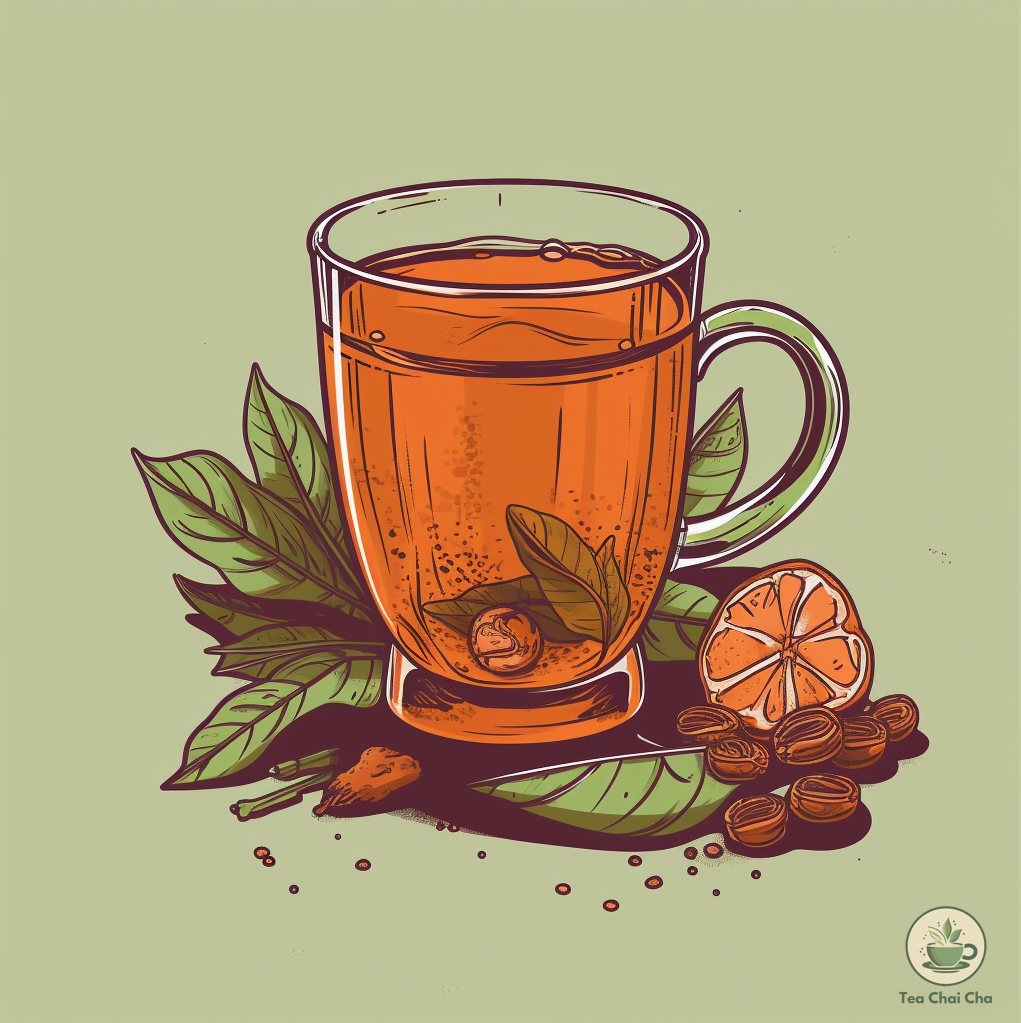
Which Black Tea Has the Most Caffeine
If you’re looking for black tea with the highest caffeine content, there are several varieties to consider.
Here are some black teas known for having relatively high caffeine content:
1. Assam Black Tea
Assam tea, grown in the Assam region of India, is often considered one of the black teas with the highest caffeine content.
It has a robust, malty flavor and is commonly used in breakfast blends for its strong and invigorating qualities.
2. Kenyan Black Tea
Tea from Kenya, particularly the CTC (Crush, Tear, Curl) processed teas, can have high caffeine levels.
Kenyan teas are known for their brisk and bold flavor.
3. Yunnan Black Tea (Dian Hong)
Yunnan Province in China produces black teas like Dian Hong, which can have a considerable caffeine content.
These teas often have a sweet, earthy flavor.
4. Ceylon Black Tea
Teas from Sri Lanka, known as Ceylon teas, can also have a moderate to high caffeine content.
They come in various flavor profiles, from light and citrusy to bold and full-bodied.
5. Nepalese Black Tea
Teas from Nepal, particularly those grown at higher elevations, can have a relatively high caffeine content.
They offer a unique flavor profile with floral and fruity notes.
6. Keemun Black Tea
Keemun tea from China is another option with a noticeable caffeine content.
It has a rich, winey flavor and is often used in classic English breakfast blends.
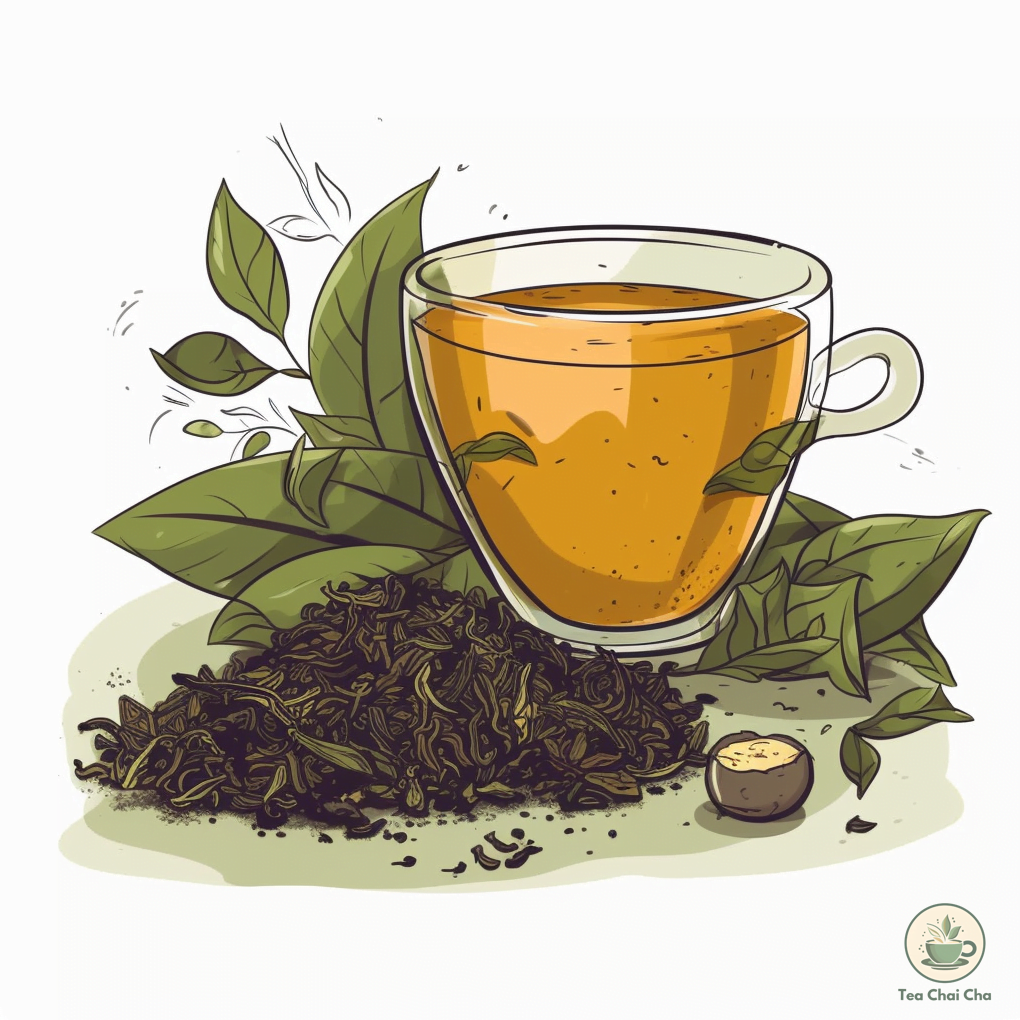
Which Black Tea Has the Least Caffeine
I’ve come across a few options that I find perfect for a milder, caffeine-light cup.
Here are some black teas known for their lower caffeine content:
1. Lapsang Souchong
Lapsang Souchong is a unique black tea from China’s Fujian province.
It’s known for its smoky aroma and flavor, but it tends to have lower caffeine levels compared to other black teas.
The reason is that it’s often made from larger, older tea leaves, which contain less caffeine.
2. Darjeeling Black Tea (First Flush)
Darjeeling teas, especially the first flush (early spring) varieties, can have lower caffeine content compared to later flushes.
They have a delicate and floral taste, making them a great option for those looking for a milder black tea.
3. Nilgiri Black Tea
Nilgiri teas from the Nilgiri Hills in India tend to have a moderate caffeine content but are generally milder in flavor compared to Assam or Kenyan teas.
Opting for lower grades of Nilgiri tea may result in a brew with less caffeine.
4. Bai Lin Gong Fu Black Tea
Bai Lin Gong Fu, also known as “Pekoe Gong Fu” or “Pai Lin Gong Fu,” is a Chinese black tea that hails from Fujian Province.
This black tea is known for its sweet, malty, and honey-like flavor profile.
While it may not be entirely caffeine-free, Bai Lin Gong Fu typically has a moderate caffeine level.
Comparing Caffeine Levels of Different Black Teas
| Black Tea Variety | Approximate Caffeine Content (per 8-ounce cup) |
|---|---|
| Assam Black Tea | 50-70 milligrams |
| Ceylon Black Tea | 40-60 milligrams |
| Darjeeling Black Tea | 30-50 milligrams |
| Keemun Black Tea | 30-50 milligrams |
| Earl Grey (Flavored) | 30-50 milligrams (may vary with additives) |
| English Breakfast Blend | 40-60 milligrams (varies by brand) |
| Lapsang Souchong | 20-30 milligrams |
| Yunnan Black Tea | 30-50 milligrams |
| Decaffeinated Black Tea | 2-5 milligrams |
Caffeine in Black Tea vs. Other Teas
| Tea Type | Approximate Caffeine Content (per 8-ounce cup) |
|---|---|
| Black Tea | 40-70 milligrams |
| Green Tea | 20-45 milligrams |
| White Tea | 15-30 milligrams |
| Oolong Tea | 30-50 milligrams |
| Pu-erh Tea | 30-70 milligrams |
| Herbal Tea (e.g., Chamomile, Peppermint) | Generally Caffeine-Free or Trace Amounts |
Caffeine in Black Tea vs. Other Beverages
| Beverage | Caffeine Content (per 8 oz cup) |
|---|---|
| Black Tea | 40-70 mg |
| Coffee (brewed) | 95-165 mg |
| Decaffeinated Black Tea | 2-5 mg |
| Decaffeinated Coffee | 2-5 mg |
| Cola (regular) | 23-50 mg |
| Energy Drinks (e.g., Red Bull) | 80 mg |
| Soda (e.g., Coca-Cola) | 23-35 mg |
| Hot Chocolate | 5-25 mg |
Does Black Tea Affect Your Sleep?
So, you might be wondering if black tea affects my sleep.
Let me share my experience with you.
I enjoy a nice cup of black tea during the day, especially in the morning.
It gives me a little energy boost and helps me stay alert.
But when it comes to the evening and bedtime, I’m a bit cautious.
You see, black tea contains caffeine, just like coffee.
Caffeine is known to stimulate the nervous system, making it harder for me to wind down and fall asleep.
So, if I have black tea too close to bedtime, it can definitely affect my sleep.
However, the good news is that the impact of caffeine varies from person to person.
Some people are more sensitive to it than others.
For me, I try to avoid black tea at least a few hours before hitting the hay to ensure I get a good night’s rest.
If I ever fancy a warm beverage before bedtime, I opt for something caffeine-free like herbal tea or just a nice glass of water.
Hydration is essential for a good night’s sleep too!
Does Black Tea Cause Dehydration?
First off, I love a good cup of black tea.
It’s comforting and gives me a little energy boost.
But does it really make me thirsty or dehydrated?
Not necessarily.
You see, black tea contains caffeine, just like coffee.
Caffeine is known to have a mild diuretic effect, which means it can make you pee a bit more.
But that doesn’t mean it’s a one-way ticket to dehydration.
As long as you’re not going overboard and drinking gallons of black tea, you should be just fine.
It’s all about moderation.
If you enjoy a few cups a day, you’re unlikely to experience any significant dehydration.
In fact, black tea is mostly water, and staying hydrated is essential for our overall well-being.
So, if you’re worried about it, you can always balance your tea with some glasses of H2O.
Is Black Tea the Best Source of Caffeine?
Black tea does have caffeine, but it’s not the only source out there.
Coffee is a big caffeine player too, and some energy drinks really pack a punch.
But, if you’re looking for something less intense than coffee, black tea can be a great choice.
Why? Well, it’s delicious!
It’s got this rich, bold flavor that lots of people enjoy.
Plus, it can give you a little pick-me-up without making you jittery like coffee sometimes can.
Related Caffeine Guides
- Does Tea Have Caffeine?
- How Much Caffeine in Green Tea – Numbers to Know!
- Does White Tea Have Caffeine? High and Low Caffeine Options!
- Does Oolong Tea Have Caffeine?
Caffeine in Different Black Teas
Frequently Asked Questions (FAQs)
How much caffeine is in black tea vs coffee?
Black tea typically contains about 40-70 milligrams of caffeine per 8-ounce cup.
Coffee generally has more caffeine, averaging around 95 milligrams per 8-ounce cup.
Is black tea high in caffeine?
Black tea has a moderate caffeine content compared to other beverages.
It’s not as high as coffee but has more caffeine than green tea or herbal teas.
How much caffeine is in black tea with milk tea?
The caffeine content in black tea with milk (like in a chai latte) will be similar to regular black tea, around 40-70 milligrams per 8-ounce cup.
The addition of milk doesn’t significantly alter the caffeine level.
How much caffeine is in black tea vs coke?
Black tea generally contains more caffeine than a regular cola drink like Coca-Cola.
A typical 12-ounce can of cola has around 30-35 milligrams of caffeine, whereas an 8-ounce cup of black tea has 40-70 milligrams.
